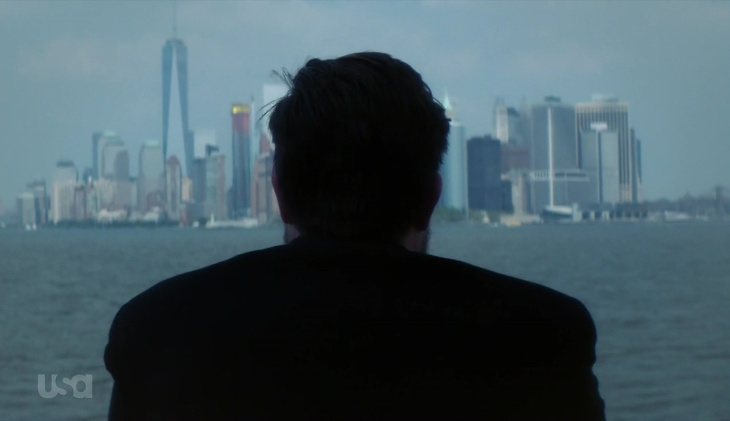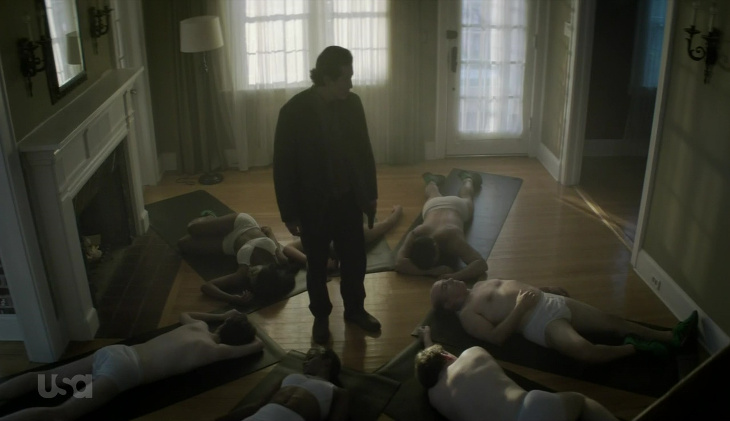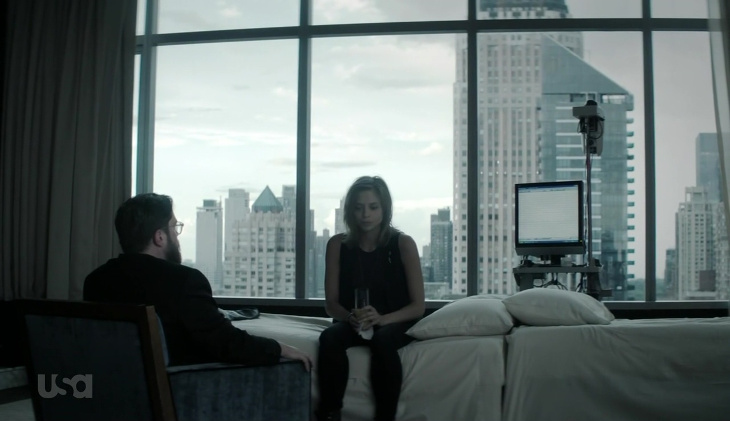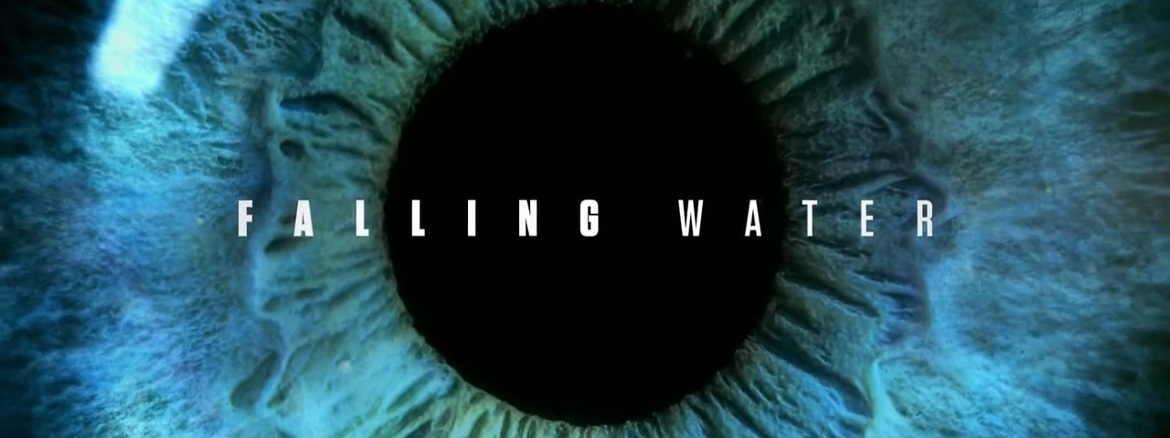
“Do you ever think your dreams are trying to tell you something? We all dream, and when we dream we think our dreams belong to us and us alone. What if we’re wrong?”
Falling Water is a bit too obtuse for its own good. I’m pleased to say it isn’t as jumbled and meaningless as some of the advertising had led me to fear, but I wouldn’t blanketly categorize it as a success. The best thing I can say about this series is the characters at the core of each of its narrative threads are interesting and well defined, even if I can’t necessarily say the same for those threads themselves. The show does have some interesting ideas, but it’s difficult to pin down the direction that the narrative should proceed in or even could proceed in. I get the feeling that there will be inevitable comparisons to the Wachowskis’ Sense8, though whether that is a fair comparison is impossible for me to judge, seeing as I haven’t watched that series. All I can conclude is if Falling Water wants to be a success then it needs to do a better job of establishing what the stakes are.

One of the reasons I found myself annoyed by the advertising for this show was that it relied solely on the central hook of the show; there are individuals who can connect to other people’s dreams. It is technically an intriguing idea, but it isn’t a plot. It isn’t even a premise, just an element of a premise. So, the advertising told me nothing of the characters or narrative, only that it had an idea that would allow for a lot of bizarre imagery. The pilot delivers on characters, but the story remains a disconnected mess. Our main three characters are Tess, a trend spotter played by French actress Lizzie Brocheré, Burton, the head of security for an investment firm played by David Ajala, and Taka, a detective played by Will Yun Lee. Each of them is introduced through their dreams, which is a neat idea, and I’m glad that the show tended to keep the border between dream and reality clear and defined. There was a moment or two where that wasn’t the case, but it is easy to imagine how it could have been far worse. Zak Orth also appears as an enigmatic businessman who is interested in Tess’s ability to connect to the dreams of others.

The narrative is, as I mentioned before, where it all falls apart. Each of the main characters has their own investigation that they are carrying out, and they are, of course, all connected in some way. Tess believes she gave birth to a son even though she can’t remember the event, and there is no record of the birth, Burton is looking into one of the higher ups in his firm who might be involved in insider trading, and Taka is looking into some odd deaths. There also appears to be a literal shadow entity, possibly named Topeka. And Tess’s son sometimes shows up. It’s an unfocused jumble of parts. The dialogue doesn’t help much either as much of it has a flat dreary quality to it. The primary exception to this being Zak Orth’s character who speaks primarily in Morpheus-style monologues about the nature of dreams and humanity. The odd thing is, while I’m not going to be giving this pilot a good review, I can imagine this show working. I’d even go so far as to say this episode could become retroactively good if future episodes built up a sense of direction and added purpose to the proceedings. At the moment, however, I can only view this episode in its own isolated context, and, on its own, I can’t honestly say it is worth recommending.
Before I wrap up, a few Notes and Nitpicks:
- Zak Orth is best known for his roles in the NBC series Revolution, and in Wet Hot American Summer.
- Casting info is annoyingly difficult to find at this point, so it took me a while to figure out where I had seen the actor who plays, Mr. Jones, the questionable higher-up at Burton’s firm. It’s Michael O’Keefe who has been in numerous works including Caddyshack, Roseanne and Homeland. I personally recognized him from his roles in Michael Clayton and a first season episode of House.
- I largely ignored the potential comparisons to Inception, because, while I’m sure it provided some inspiration for this show, the only real element that connects the two is the prominence of dreams.
- I do have to praise the cinematography. There are a lot of beautiful shots in this episode, and I almost considered giving it a recommendation based on that alone.




Add comment